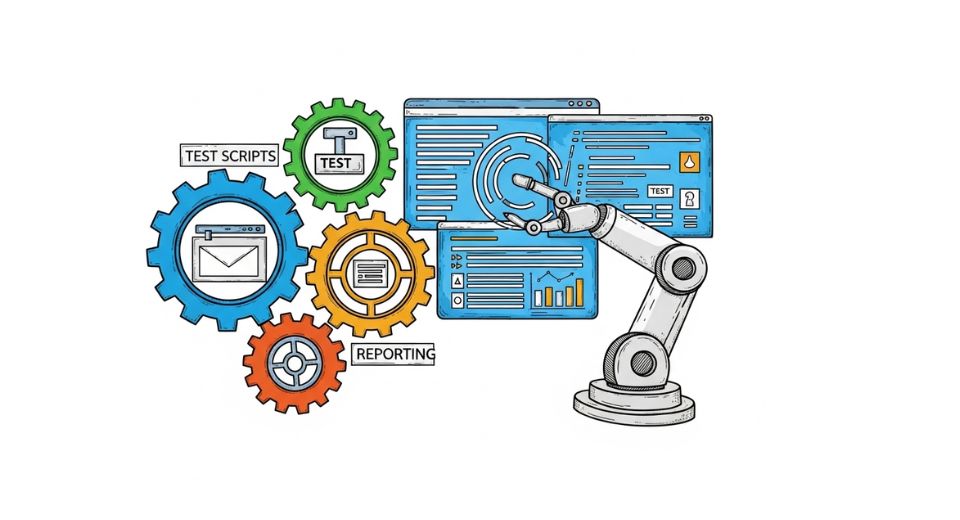
Jul 24, 2025

The newly released research report by Metastat Insight provides an in-depth analysis of the Global Automation Testing Market, highlighting the many developments, trends, and strategic directions defining this industry. The research goes deeper than mere observation, examining the intricate actions and paradigm changes presently impacting companies, technology vendors, and developers participating in this market. It is not only a snapshot of current circumstances but also a window through which one can see changing dynamics that quietly but persistently are reshaping expectations and operations in this realm. Global Automation Testing market is expected to be worth $36,890.15 million in 2025 with a CAGR of 14.5% during 2025-2032. Automation testing continues to stretch its reach into industries that increasingly grasp the need to improve their digital processes.
Today, companies are under greater pressure to guarantee the quality and dependability of their software products in environments that require speed without compromise on accuracy. Therefore, automation testing has moved from being an additive procedure to becoming a part and parcel, integral part of software development plans. This shift has created significant changes in how businesses address not just their testing practices but also their overall development schedules, resource investment, and technology commitment over the long term. The terrain covered in this report highlights the increasing trend of organizations embracing more advanced solutions that promote efficiency while reducing the risk of human fallibility. In industries where the cost of failure in the software can be expensive or even perilous, the drive for automation becomes even more pertinent. The report describes how these sectoral forces for change are quietly driving the evolution of technological uptake, creating a competitive yet collaborative market. One of the less overtly dramatic changes noted in the Global Automation Testing Market report is the evolving nature of the relationship between service providers and end users. No longer content with off-the-shelf, one-size-fits-all solutions, customers today expect custom solutions that address very closely their specific operational imperatives and business objectives.
This has created an imperative for innovation not just in the technologies themselves but also in the approaches through which they are delivered and supported. The research follows these trends with close detail, describing how the demands for customization and flexibility are being addressed through partnerships, bespoke tools, and service models to provide increased flexibility. Technology firms in this sector are ever more conscious of the need to hone their offerings. Where automation testing was previously seen largely in terms of cost-cutting, today it is increasingly connected with value generation and competitive edge. Such reframing is part of a wider shift in thinking where quality assurance is understood as central to brand image, customer happiness, and market competitiveness.
It has caused companies to reconsider not just their software strategy but even the way they define success within their operating models. What stands out of the Metastat Insight research is its portrait of a market in reflective movement, where adoption is fear of obsolescence less than driven by the desire for excellence. The findings given present a picture of organizations embracing these tools as ways of remaining agile, responsive, and well-placed for the uncertainties of a digitally networked world. By doing this, they bring their operational goals closer in line with the technological capabilities at their disposal, creating a culture where experimentation and judicious risk-taking are not merely accepted but promoted. Close scrutiny of the results uncovers that end-user-vendor partnership is a significant factor in determining the direction of the Global Automation Testing Market.
This partnership tends to surface in the form of co-development projects, feedback mechanisms, and extended partnerships with a view to ensuring that solutions develop in harmony with the client's requirements. Such partnerships are becoming more standard as firms see that effective automation is not so much about launching tools but about creating ecosystems within which those tools can grow and thrive and yield ongoing value. Yet another dimension to this intricate story is regulatory environments and compliance requirements. Though not directly referred to as being an immediate driving force, these inevitably impact the choices organizations have when it comes to choosing automation testing platforms. The comfort of having compliance-ready options is not to be underestimated within settings where accountability ranks high. This only adds to the multi-dimensional factors businesses consider in navigating their choices in this domain. The report also subtly shows how geographical influences shape market behaviors.
Various regions have different levels of maturity with regards to adoption and integration, depending on cultural orientations to technology, economic health, and government support for technological innovation. These regional variations add to a larger canvas of market movement, with some areas serving as pioneers and others slowly gaining pace. This geographical diversity emphasizes the requirement of flexibility and resilience by providers interested in building or expanding presence. Summarizing this analysis, this comprehensive report presented by Metastat Insight emphasizes the importance of the Global Automation Testing Market as it further develops in response to technological, organizational, and cultural advancements. The findings presented here are useful to stakeholders who would like to have insight not only into where the market is now but also where it is headed in the future. By close examination and thorough investigation, it is evident that this industry is more than a technological change; it is a more comprehensive change in how companies think about quality, efficiency, and innovation today.
Drop us an email at:
Call us on:
+1 214 613 5758
+91 73850 57479